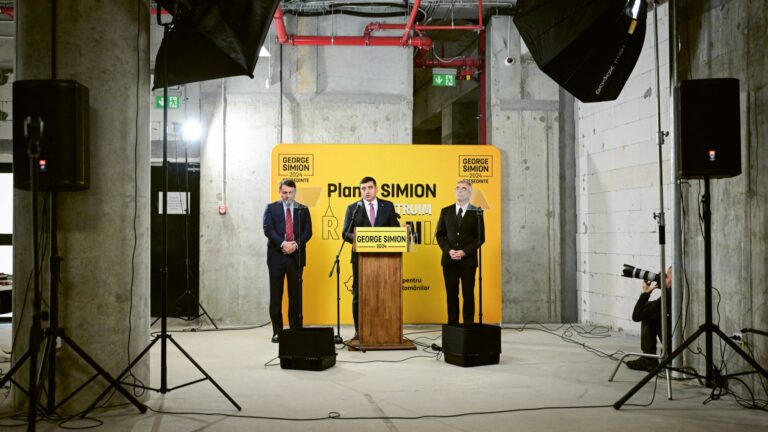Recent evidence has confirmed suspicions that the Hungarian opposition’s campaign ahead of the 2022 elections was massively funded from overseas, possibly involving the CIA. What may prove to be the gravest ever attempt at interference in the Hungarian election process sounds unbelievable, given that Hungary is just one of many small Central European states, with a population that is not much larger than that of New York City’s. However, the evidence is so overwhelming that the incident is now being investigated at the highest levels in Hungary. It is not simply foreign campaign funds having been channelled to Hungarian political parties that we are talking about, which is obviously illegal in itself under the country’s electoral laws, but quite possibly a massive fraud and money laundering scheme as well, because part of the money given to the opposition alliance appears to have simply vanished.
So what happened exactly? Well, some details are still blurry, but the whole story started to finally unfold over the weekend. It all started with a shady accounting firm whose suspicious financial moves raised red flags with the Hungarian authorities a couple of weeks ago. It turned out that one of the company’s founders was Gordon Bajnai, a Socialist ex-prime minister, and that it was also responsible for the financing of the united left’s campaign in the parliamentary elections earlier this year. After tracking down the firm’s accounting books (hidden in a small village of fewer than three hundred people for some reason), it turned out that the opposition campaign had received over $7.7 million from unknown sources through a non-profit called Action for Democracy.
At first glance, Action for Democracy looks like your usual leftist NGO. The contents of its website were scrubbed, and an entirely new version was uploaded after the news broke, but the original site is still accessible through Wayback Machine. According to the archived website,
the mission of Action for Democracy is to bolster participation in crucial elections where the defeat of authoritarian regimes is at stake.
Only two such cases were listed, however, Hungary and Brazil, which had their elections In April and October respectively. But Action for Democracy’s promised fundraising campaign to help first-time voters register in Brazil was never launched, contributing to the suspicion that the whole thing was set up only for the Hungarian elections. The site calls Hungary a ‘battleground state where anti-democratic forces are trying to use an upcoming election in April to cement their grip over power’. I don’t understand why supposed anti-democrats would be so much into elections lately but let’s move on. The US-based NGO’s weird obsession with Hungary suddenly started to make a lot more sense when it was discovered that it was run by the (former) chief advisor of Budapest’s leftist mayor, Gergely Karácsony – a PM candidate at the time himself.
Now, to repeat for the record: accepting and utilising campaign funds from abroad is a crime in itself in Hungary, as it clearly falls under the category of foreign interference in domestic electoral processes. That is why Dávid Korányi, the aforementioned advisor and ex-state secretary in the short-lived Bajnai government, and his team claimed that every cent that arrived in Hungary through Action for Democracy had been donated by everyday people of the Hungarian diaspora who, whether they live in New York, London or Berlin, are Hungarian citizens, and therefore their support counts as domestic. To ensure that no laws were broken, claimed Korányi, the donation site carefully vetted every would-be supporter of the great anti-Orbán cause based on whether they could provide a verifiable Hungarian passport number.
Turns out, all this was just part of a big fat lie, a desperate last-minute attempt to save face. Through the Wayback Machine, the original donations page is also reachable for all to see. The little info box on the right makes it painfully hard for anyone to claim that it wasn’t raising funds for campaign purposes. ‘We’re facing the most critical election the world has ever seen,’ it reads. ‘The fate of democracy worldwide rests on this election and STOPPING ruthless dictators like Trump, Putin and Orbán.’ A bit overly dramatic, perhaps.
One might wonder if the left truly believes this nonsense or just preys on the sentimentality of the common people.
Not that it would matter: Orbán won his fourth consecutive term with a record number of votes, which means that the ‘ruthless dictator’ epithet is a bit of a stretch.
Anyway, back to the donations page. One glance is enough to see that it doesn’t ask for any passport number. Literally anyone can donate. But this is not the main issue. Regarding the payment, it offers you several options within the $5 to $50 range, the typical amount that we call microdonations. It would be a truly impressive feat to be able to collect close to $8 million from these microdonations alone. If everyone had given $25 (a generous average, I believe), it would have taken over three hundred thousand people to raise that amount, for instance. In contrast—and this is the most irrefutable proof of fraud—the tracker installed on the page counted only fourteen (!) individual donations by election day. Not fourteen thousand, not even fourteen hundred, just fourteen. So, if it was true that the $7.7 million came from these donations, then each of those fourteen people would have had to donate an average of $550,000. Even if that was true by some miracle, one could hardly call it democracy.
I know that $7.7 million does not seem like too much money by American standards, but it is much in Hungary. The yearly salary of the Hungarian prime minister, for example, is around $145 thousand, which means that AfD campaign contribution could pay for a prime minister for 53 years. Besides, under Hungarian laws, the funds for financing the campaigns are granted by the state, and in 2022 the maximum amount any party (including the Fidesz and the Opposition) could get was just below $1.8 million. Seven million, therefore, is just unimaginable for that purpose and makes many question where most of it actually went.
Now, what about the CIA, you might ask? Well, the connection is vague at best, but the devil is in the details. Action for Democracy, as it also turned out, was supported by the National Endowment for Democracy (NED), an organisation observers tend to call ‘the second CIA’.
Indeed, the NGO is one of the most well-connected in Washington, works closely with other giants, notably Soros’s Open Society Foundation
and has been influencing world events for several decades now. NED has poured possibly billions so far into various colour revolutions in the post-Soviet sphere, into Twitter revolutions of the Middle East and into most elections across all of Latin America. NED was essentially established in the 1980s to do somewhat overtly what the CIA was doing covertly for decades before.
Nonetheless, before we get lost in meaningless details, let us refocus our attention on what matters. It is not which agency or foundation actually financed the Hungarian left during the last election cycle, but the fact that it happened. Forces from outside the country severely interfered in the Hungarian parliamentary elections, all in the name of ‘democracy’, ironically enough. This is possibly the biggest attack on Hungarian democracy since its beginning in the early ‘90s. But regardless of who was behind it—whether it was Soros, NED, the CIA or Joe Biden himself—it should be taken as a warning for any other democratic countries that might try to reject the mainstream, liberal-leftist models. Be wary of those who appear to be the most concerned about the state of your democracy, for they might be already working to undermine it.






